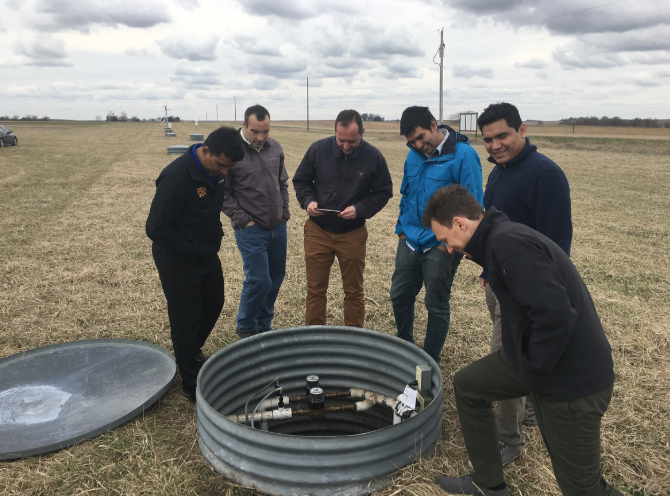A Water Quality Partnership to Deliver Sustainability Benefits on the Farm

Advances in modern agriculture have enabled a dramatic increase in crop yields and consequently, more security in the supply of food, feed, fuel and fiber to support a growing and more affluent global population. Many have asked if this improvement in yield has been at cost to the environment - a question I’ve been passionate about solving.
There are concerns over the impact of agriculture on water quality, and the data shows that innovation has had a positive impact. Since the mid-1970s in the US, there has been dramatic increase in average corn yields, while nitrogen fertilizer applications have remained relatively steady. This has led to an increase in Nitrogen Use Efficiency (NUE) of ~70% over that time (Fig.1). For reference, the average increase in fuel efficiency for the US passenger vehicle fleet has only been ~27% since 1980. In order to produce the same yields, without improvement in NUE, the corn system would have needed 4.7 million more tons of nitrogen fertilizer in 2016 alone. Improvements in NUE have recently been linked with improvements in numerous sustainability outcomes, including greenhouse gas emissions, eutrophication potential, and energy use, and conventional agricultural practices typically have a better sustainability footprint.
There has been tremendous progress and more can be done! We are excited to announce a partnership we are building with Monsanto and Iowa State University to quantify the impacts of modern agriculture practices on water quality outcomes. Through this collaboration we aim to determine management practices and advanced germplasm technologies that can both support the farmer’s bottom line and improve water quality in the most productive cropland on the planet.

*Sources: USDA-NASS, USDA-ERS Does not include manure application



